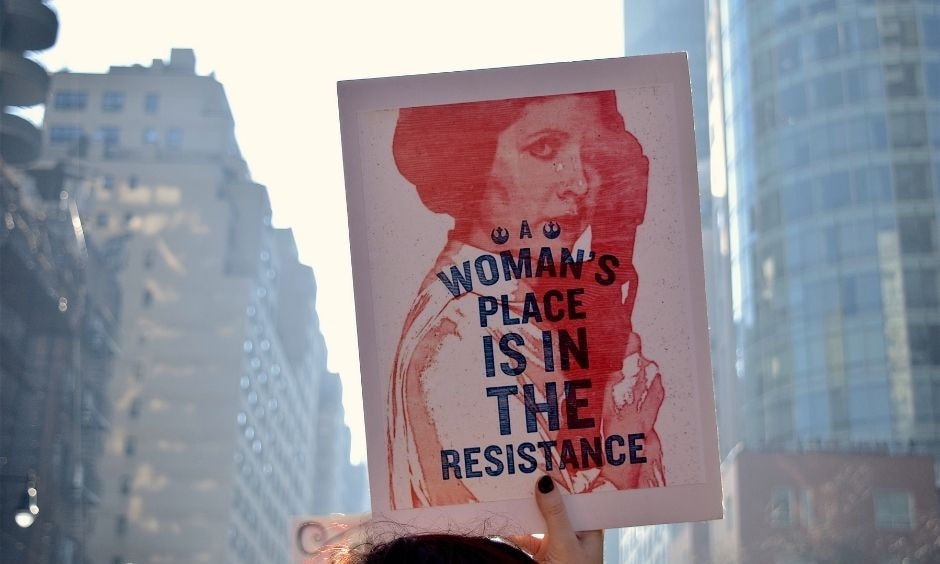
Medicalization is an expanding process of labeling and treating human conditions and behaviour as illnesses or disease.
A 2022 article in Nature[1], supported a broader medicalization of human behaviour calling resistance to medical authority a culture war. To combat this resistance, the author suggests that the ‘shape-shifting’ idea of ‘freedom’ should be treated as an illness:
However, without strategic integration, freedom becomes an individualistic paradigm focused on personal gain, disengaged from collectivist public health efforts. The embrace of mitigation should be promoted as an expression of freedom and support of human rights, a communal paradigm focused on maintaining personal health and dignity.
The medical community must take seriously the medicalization of freedom and start problem-solving around it to stop the spread of the anti-science movement. Without action, there will be further distrust of the medical establishment, allowing for deepening politicization of other aspects of public health.
In contrast, a 2021 article in Public Health Ethics, highlighted some conflicts in over-medicalization:
The dominance of a ‘categorical’ (disease-by-disease) approach to global health that has emphasized ‘silver-bullet-type solutions’ has eroded the ‘infrastructure of public health services … that degrade rather than improve countries’ public health situations’ (Navarro, 2004, at p. 5). This framing is of course pushed by wealthy countries in the Global North—most obviously the USA—in which the forces of medicalization and the capital attached to it are deeply entrenched in all manner of social institutions and structures.[2]
Such bold critiques may be blunted by the hegemonic process of voluntary consent to biopower – health practices and institutions we follow without questioning or understanding why other than we’ve always done it that way -- those silver bullets. Beneath such structures, however, there remain ‘odd’ persistent practices and tales of resistance that seek balance.
In The Birth of Social Medicine, Foucault observed that certain early religious groups in England and elsewhere resisted interference by the state and medicalization by asserting the right to their lives, “the right to get sick, to care for oneself and to die in the manner one wished”:
Instead of seeing in these religious practices a present-day residue of archaic beliefs, shouldn’t they be seen as the contemporary form of a political struggle against politically authoritarian medicine, the socialization of medicine, the medical control that presses mainly on the poor population? The strength of these continuing practices resides in the fact that they constitute a reaction against this poor people’s medicine in the service of class…[3]
[1] Jerel M. Ezell, “The medicalization of freedom: how anti-science movements use the language of personal liberty and how we can address it,” Nature Medicine volume 28, page219 (Feb., 7, 2022). https://www.nature.com/articles/s41591-021-01640-y
[2] Daniel S Goldberg“Against the Medicalization of Public Health,” Public Health Ethics, Volume 14, Issue 2, July 2021, Pages 117–119, https://doi.org/10.1093/phe/phab024
[3] Foucault, The Birth of Social Medicine, p. 155.
A 2022 article in Nature[1], supported a broader medicalization of human behaviour calling resistance to medical authority a culture war. To combat this resistance, the author suggests that the ‘shape-shifting’ idea of ‘freedom’ should be treated as an illness:
However, without strategic integration, freedom becomes an individualistic paradigm focused on personal gain, disengaged from collectivist public health efforts. The embrace of mitigation should be promoted as an expression of freedom and support of human rights, a communal paradigm focused on maintaining personal health and dignity.
The medical community must take seriously the medicalization of freedom and start problem-solving around it to stop the spread of the anti-science movement. Without action, there will be further distrust of the medical establishment, allowing for deepening politicization of other aspects of public health.
In contrast, a 2021 article in Public Health Ethics, highlighted some conflicts in over-medicalization:
The dominance of a ‘categorical’ (disease-by-disease) approach to global health that has emphasized ‘silver-bullet-type solutions’ has eroded the ‘infrastructure of public health services … that degrade rather than improve countries’ public health situations’ (Navarro, 2004, at p. 5). This framing is of course pushed by wealthy countries in the Global North—most obviously the USA—in which the forces of medicalization and the capital attached to it are deeply entrenched in all manner of social institutions and structures.[2]
Such bold critiques may be blunted by the hegemonic process of voluntary consent to biopower – health practices and institutions we follow without questioning or understanding why other than we’ve always done it that way -- those silver bullets. Beneath such structures, however, there remain ‘odd’ persistent practices and tales of resistance that seek balance.
In The Birth of Social Medicine, Foucault observed that certain early religious groups in England and elsewhere resisted interference by the state and medicalization by asserting the right to their lives, “the right to get sick, to care for oneself and to die in the manner one wished”:
Instead of seeing in these religious practices a present-day residue of archaic beliefs, shouldn’t they be seen as the contemporary form of a political struggle against politically authoritarian medicine, the socialization of medicine, the medical control that presses mainly on the poor population? The strength of these continuing practices resides in the fact that they constitute a reaction against this poor people’s medicine in the service of class…[3]
[1] Jerel M. Ezell, “The medicalization of freedom: how anti-science movements use the language of personal liberty and how we can address it,” Nature Medicine volume 28, page219 (Feb., 7, 2022). https://www.nature.com/articles/s41591-021-01640-y
[2] Daniel S Goldberg“Against the Medicalization of Public Health,” Public Health Ethics, Volume 14, Issue 2, July 2021, Pages 117–119, https://doi.org/10.1093/phe/phab024
[3] Foucault, The Birth of Social Medicine, p. 155.



 RSS Feed
RSS Feed
